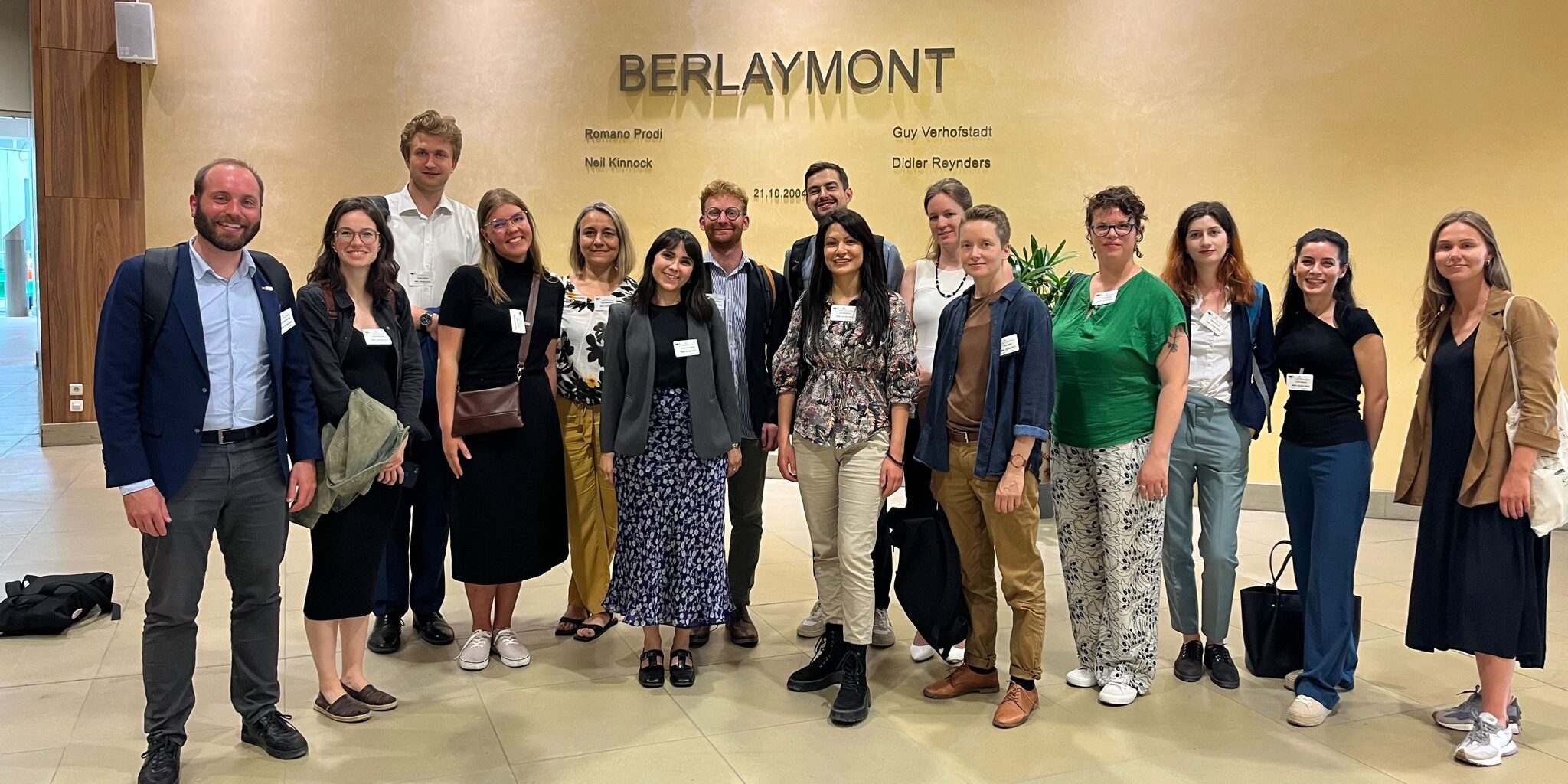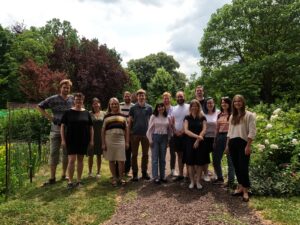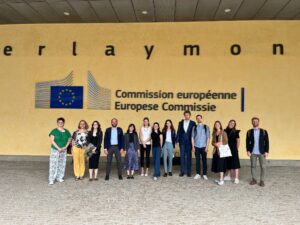
A total of 25 participants from environmental organisations representing 13 countries met in Brussels for an advocacy week. The week also included a discussion on the next steps of Citizens’ Observatory of Green Deal Financing project from 26 till 30 June.
The advocacy week allowed for a number of interesting and substantive meetings with decision makers to take place. This included, among others, meeting with the Infringement Unit of DG Environment to raise concern about the weaking of environmental legislation designed to protect the EU’s stunning biodiversity. Additional meetings also included with SG RECOVER, which allowed partners to raise their concerns about the lack of non-transformative investments, as well as a lack of transparency and participation during the process of design and implementation of these. We also shared national cases with advisors to the Greens group in the European Parliament. National campaigners met with numerous other decision makers from their respective countries bilaterally to further exchange their concerns and provide recommendations, leading to direct connections being established between the national and EU level.
The meeting on the Citizens’ Observatory of Green Deal Financing was used to evaluate the latest activities and identified the main lessons learned from this, as well as areas for improvement for delivering future activities. This meeting was also used to understand the priorities of project partners and how the work of all partner organisations and leverage the coalition to reach the wider public effectively.
Another important part of the week was also to discuss and mobilise other stakeholders around these topics. Counter Balance and the Rosa Luxemburg Stiftung Brussels Office organised a roundtable discussion ‘European public investments for a socially just transition’ on 27 June to bring together labour unions, civil society organisations and academics to discuss how EU public investments affect energy, housing, public services and industry. The roundtable aimed to connect different sectors of civil society, exchange points of view, identify shared concerns, and identify key areas of work to facilitate progress towards a democratic and just public investments agenda. We discussed how current EU investment programs address socioeconomic needs in Europe (and beyond), what should be the priorities of EU public finance and how our respective organisations can work together to ensure public investments contribute towards creating a more equitable and sustainable economic model.
We also used this week to promote our activities. We had meetings with journalists and this resulted in an article ‘EU citizens poorly involved in recovery funds’ design and spending, report shows‘ in Euractiv. We also organised an event for the public and journalists to promote the virtual tours. ‘From the ground up – how citizens can transform Europe’s recovery’ which took place on Thursday, 29 June and focused on testimonials from campaigners who explained how Bulgaria, Hungary, Italy and Poland are using the recovery money to finance projects and investments. They presented videos showing the impact of recovery projects on the ground and which one of them we can call truly transformative. After the screening, we had a discussion on how we as citizens can organise to get more control over EU investment programs with EUobserver’s journalist and an expert from the Foundation for European Progressive Studies (FEPS).
 |
 |
 |

